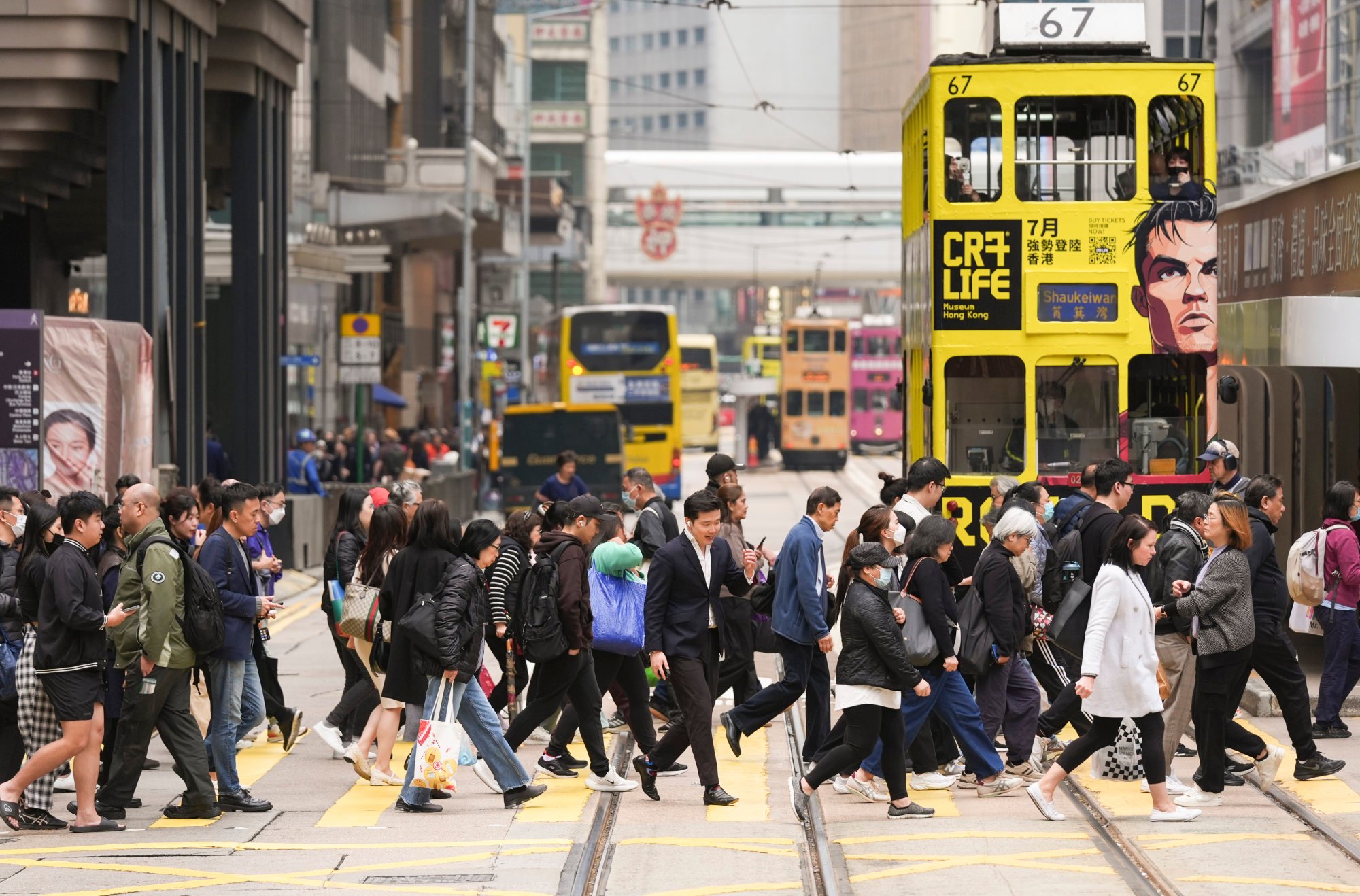
Observers and economists have said Hong Kong’s “very mild” budget failed to promptly address government spending shortfalls and will not spark any uptick in consumption, as they called for more aggressive measures to boost revenue amid concerns over a structural fiscal crisis.
Following the blueprint’s unveiling on Wednesday, some also expressed disappointment with the limited housing and land sale measures aimed at revitalising the market.
Other critics said the absence of pay cuts for top officials would give a perception the administration was not committed enough to sharing economic hardships faced by residents.
Do you have questions about the biggest topics and trends from around the world? Get the answers with SCMP Knowledge, our new platform of curated content with explainers, FAQs, analyses and infographics brought to you by our award-winning team.
In his annual budget address, Financial Secretary Paul Chan Mo-po announced a pay freeze for all civil servants, cuts in government recurrent expenditure and reductions in transport subsidies for the elderly as part of a package of measures to help balance the books.
The deficit for the current financial year would be HK$87.2 billion (US$11.2 billion), he said.
Tang Heiwai, an economics professor at the University of Hong Kong, said the budget still appeared to be “very generous”.
“[Chan] was, in my opinion, very mild in addressing the serious deficit,” he said. “He has taken into account the interests of many segments of society ... It’s debatable whether there should be deeper cuts in certain spending areas.”
Tang also said there was room for civil servant wages to be cut, recalling the effects of the Sars epidemic when government workers had their pay frozen in 2003 and then cut by 3 per cent in 2004 and 2005.
With the latest spending plan, Hong Kong was adopting “a conservative approach” to balancing its books, he said, pointing to the announced 2 per cent reduction in recurrent expenditure for 2025-26, with the level to be cut by the same amount over the two following financial years.
The economist said reducing recurrent expenditures by an additional 1 percentage point to a more ambitious 3 per cent level could save an estimated HK$4.2 billion annually over the next three financial years.
In a recent policy paper, Tang and others at the university’s Business School stressed a large portion of the deficit was structural, suggesting more aggressive measures were needed to help balance the books.
Chan did not address the issue in his budget speech but pledged to return Hong Kong’s operating account to a surplus in 2026-27. But Tang said the crux of the problem was the government’s ability to boost revenue to offset increased spending.
“For example, Singapore managed to boost revenue to offset its doubled spending,” he said. “But our revenue has not kept pace, as our spending doubled without a corresponding increase in revenue. And the annual growth in government spending outstripped GDP growth for years. What else can this be called if not a structural deficit?”

Lorraine Tan, director of equity research for Asia at investment research company Morningstar, said the budget was unlikely to help “spark a material consumption uptick” and excite the market in general.
“The plans for the housing and land sector are somewhat disappointing,” she said. “The curtailment of commercial site land sales was also probably expected and not expected to have much impact, because responses to land sales were already disappointing in 2024, and, since the sites being offered are outside the Central area, won’t do much to address the vacancy rates in Central.”
She was referring to the government’s announcement it would not sell any commercial land sites in the coming financial year, due to high office vacancy rates and ample future supply. It will also consider rezoning some commercial sites for residential use.
Tan, who leads analysts in Hong Kong and Shenzhen, said neither did the budget bring “much fresh news” about major projects such as the Northern Metropolis along the border with mainland China.
Chan also highlighted the importance of artificial intelligence (AI) in redefining the core competitiveness of an economy. He pledged to allocate HK$1 billion for the establishment of the Hong Kong AI Research and Development Institute.
The Democratic Party, an opposition group, criticised the absence of pay cuts for principal officials, known for their high salaries, saying the untouched levels would create a perception they were reluctant to “share economic hardships faced by residents”.
Party chairman Lo Kin-hei also said the administration should go beyond eliminating 10,000 civil servant posts and carry out a full review of the government workforce to improve efficiency.
The Society for Community Organisation, an advocacy group for low-income residents, also expressed disappointment over the budget’s failure to relieve financial hardship faced by many in the current economic climate.
It called for more aggressive initiatives including a tax increase for top earners and adjustments in income thresholds to help redistribute wealth and boost government coffers.
More from South China Morning Post:
- Hong Kong’s Paul Chan cuts spending in budget, plots AI path to future growth
- Budget 2025: how is Paul Chan planning to balance Hong Kong’s books?
- Pay freeze for Hong Kong civil servants, with 10,000 government posts to be axed
- 67% airport departure tax increase will have ‘minimal’ impact on Hong Kong tourism
For the latest news from the South China Morning Post download our mobile app. Copyright 2025.









































